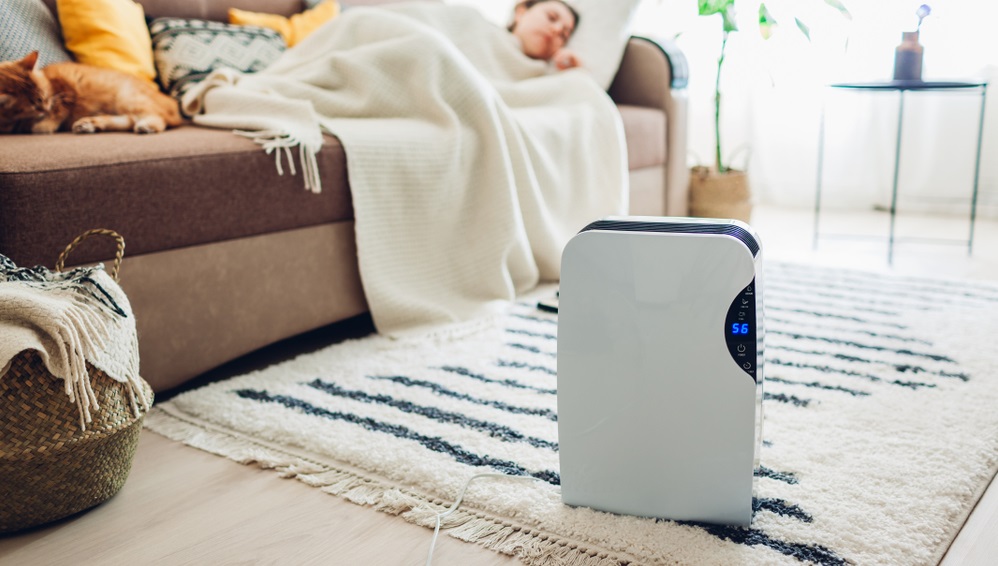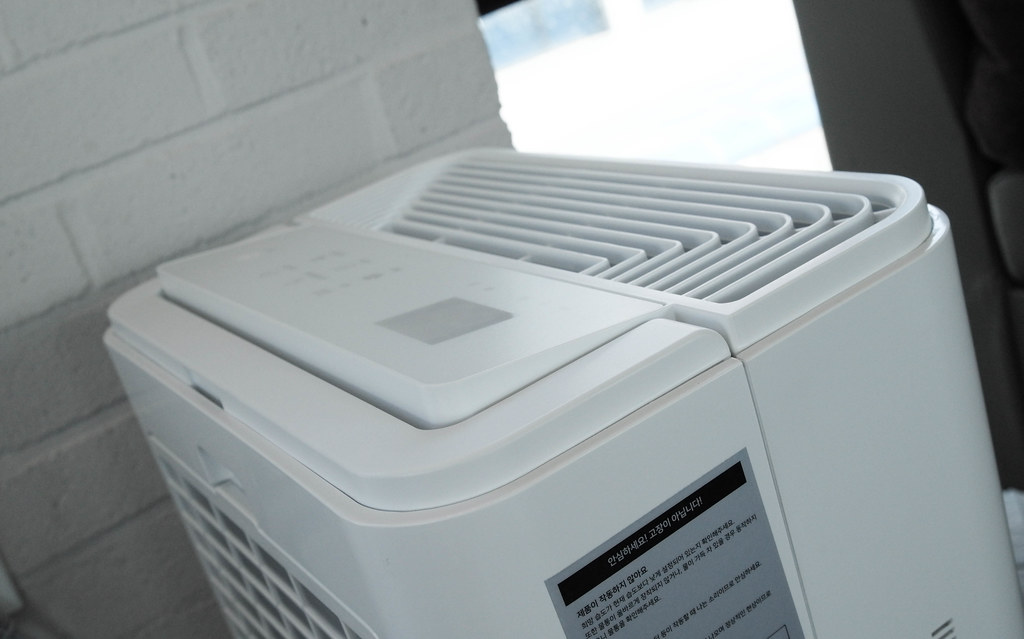
If you are in the market for a dehumidifier, then you probably know all the benefits they can add to your home, but it’s important to get the right size for your space. So, when it comes time to ask what size dehumidifier do I need? There are a few factors that determine what size will be best for you. The right size will effectively reduce allergens in your home so you can breathe well and be healthy.
What is a dehumidifier?
A dehumidifier is exactly what it sounds like: an appliance that sucks the humidity out of the air. These air conditioning units are designed to extract water from the air for a multitude of reasons, the most common simply being comfort.
This is a wonderful item to own if you live in a humid region. In addition to making your space more comfortable, it can improve your health, reduce unpleasant odors, and prevent mildew and other molds from growing.
Why does the size matter?
The size of your dehumidifier matters because a small one in a large space will yield little to no positive results. And if your dehumidifier is too large, it can cause the room to feel dry and stuffy, which is not the goal.
What size dehumidifier do I need
To choose the perfect unit for your house, you first need to understand how dehumidifier sizing works and the factors that go into choosing the right size.
How Dehumidifier sizing works
Dehumidifier size is determined by its total moisture removal capacity over 24 hours. This is measured in pints so you can accurately determine the ideal size for your space and environmental conditions.
To know how much capacity, you need for a room, you need to know the approximate square footage of the room and some information on your environmental conditions. For example, a 500 square foot room in a moderately damp environment needs a dehumidifier with 25-30-pint capacity to effectively control the room’s humidity.
Factors to Consider
The square footage of your space is only one aspect of determining the right dehumidifier size for you. To choose the optimal size, try to take all of these factors into consideration.
Room Size
Attain approximate square footage of the room you want to place the dehumidifier. If you do not do this, there is a good chance you will purchase the wrong size resulting in suboptimal room comfort.
Room Conditions
Decide how damp your space is and whether it needs an extra-strong dehumidifier to reduce the water in the air. Basements are typically damper than attics and spaces that are higher up. Consider this when choosing the size, or it may not make enough difference in your air quality.
Environmental Conditions
This refers to the geographical area you live. If you live in a damp climate like Florida, you need a higher capacity dehumidifier. Those that live in a dry area like Nevada that has little moisture in the air will need a lower capacity.
Occupancy
Humans contribute humidity to the air as we breathe. Because of this, if you have a busy household with many people in it, you may want to opt for a slightly higher capacity unit. On the other hand, if you only have one or two people in your house you don’t need to increase your capacity and use a lower capacity option.
Number of Doors and Windows
Doors and windows, or lack thereof, contributes to the humidity in the air. If you have a room full of windows, this will cause the outside air to affect the room conditions, especially if they are often open.
A room with a lot of doors will need a larger capacity unit because more moisture will seep in underneath doors or through them if you leave them open. If your room only has a single door that reaches close to the floor, your humidity won’t be affected much by this.
Proximity to Laundry Appliances
Washers and dryers add a great deal of moisture to the air that force your dehumidifier to work overtime. Ever notice that the air in your laundry room gets super-hot and thick whenever you do a bunch of laundry loads? To dry your clothes dryers, push the moisture out into the air causing the humidity to rise considerably.
If you are getting a dehumidifier for your laundry room, increase the water removal capacity to ensure it doesn’t become overwhelmed by your dryer’s moisture output. If you place the dehumidifier in an open space on the same floor as your laundry appliances, increase the capacity slightly to offset the extra humidity.

Conclusion
A dehumidifier can do wonders to improve the comfort of your space. Stop musty odors, prevent mildew and mold, and feel more relaxed in your home by adjusting the air to perfection. Use this guide to figure out the best size dehumidifier to make your space comfortable and cool.
FAQs
Do I need more than one?
It depends on how large of a space you want to dehumidify. If it is a multi-level house, you probably need one for each floor at least. If you live in a large apartment where one room is significantly far away from another room, it will benefit your air quality to place one in either room to maximize the effects.
How do I know if I need one?
If there is a persistent musty odor in your home, a dehumidifier can neutralize the smell and prevent other odors from occurring. If you feel that there is always a heaviness in the air making it uncomfortable to breathe and even just sit around, you may have too much moisture in your space. A dehumidifier will solve these problems and benefit your health as well.
Do they require maintenance?
The most maintenance dehumidifiers need is to regularly empty the water that has been sucked out of the air. The more moisture in your air the more it will need to be emptied, usually about once a week or every few days to stop it from overfilling.
Are there any downsides?
The disadvantages of dehumidifiers are minor. They release heat when they are running, which can be uncomfortable in the summer but is an added benefit in the winter. The constant hum they make can be an annoyance to some, but after some time it becomes unnoticeable. And they also take up space in your home, some more than others, but if you have a small space it is inconvenient.
